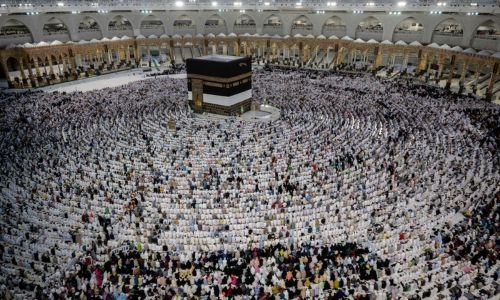The Supreme Committee for Hajj and Umrah Affairs has implemented new regulations for the 2025 Hajj season. These regulations require campaigns to accommodate a minimum of 90 pilgrims, with those failing to meet this number being denied participation in the pilgrimage. Additionally, each campaign must provide a bank guarantee of at least BD20,000 for the first 90 pilgrims. For larger groups, additional guarantees are necessary: BD10,000 for every extra 50 pilgrims and another BD20,000 for groups exceeding 300 pilgrims. The guarantee must be submitted as a cheque to the Ministry of Justice, Islamic Affairs, and Waqf, and will be refunded after the Hajj season, provided all contractual and financial conditions are met.
The new regulations outline specific guarantee amounts for different group sizes. For example, the guarantee for groups with 291 to 340 pilgrims is BD90,000, while for groups of 241 to 290 pilgrims, the guarantee is BD60,000. Groups of 191 to 240 pilgrims must provide a guarantee of BD50,000. Additional fees will be required for groups exceeding 340 pilgrims. These regulations aim to ensure the safety and comfort of pilgrims during their journey to Mecca and the surrounding areas while also regulating the number of participants to streamline the pilgrimage process.
It is important for campaigns organizing Hajj trips to adhere to these new regulations in order to avoid being barred from participating in the pilgrimage. By providing the required guarantees and following the guidelines set by the Supreme Committee for Hajj and Umrah Affairs, campaigns can ensure that their pilgrims have a smooth and successful journey. The guarantee acts as a form of security for the Ministry of Justice, Islamic Affairs, and Waqf, ensuring that financial obligations are met and pilgrims are properly taken care of during the Hajj season.
Campaign organizers must understand the financial implications of these new regulations and plan accordingly. By calculating the required guarantees based on the number of pilgrims in their group, organizers can budget effectively and ensure that they meet the necessary financial obligations. Understanding the refund process for the guarantee is also crucial, as it will be returned after the Hajj season, provided all conditions are fulfilled. This ensures that campaigns are financially responsible and accountable for the pilgrims under their care.
In conclusion, the new regulations introduced by the Supreme Committee for Hajj and Umrah Affairs for the 2025 Hajj season aim to streamline the pilgrimage process and ensure the safety and comfort of pilgrims. By requiring campaigns to accommodate a minimum number of pilgrims and provide specified guarantees, the Committee is taking steps to regulate and standardize the Hajj experience. Campaign organizers must comply with these regulations to avoid being barred from participating and to ensure a successful journey for their pilgrims. Understanding the financial implications and refund process for the guarantees is essential for organizers to plan effectively and meet their financial obligations. These regulations ultimately contribute to a more organized and efficient Hajj season for all participants.










